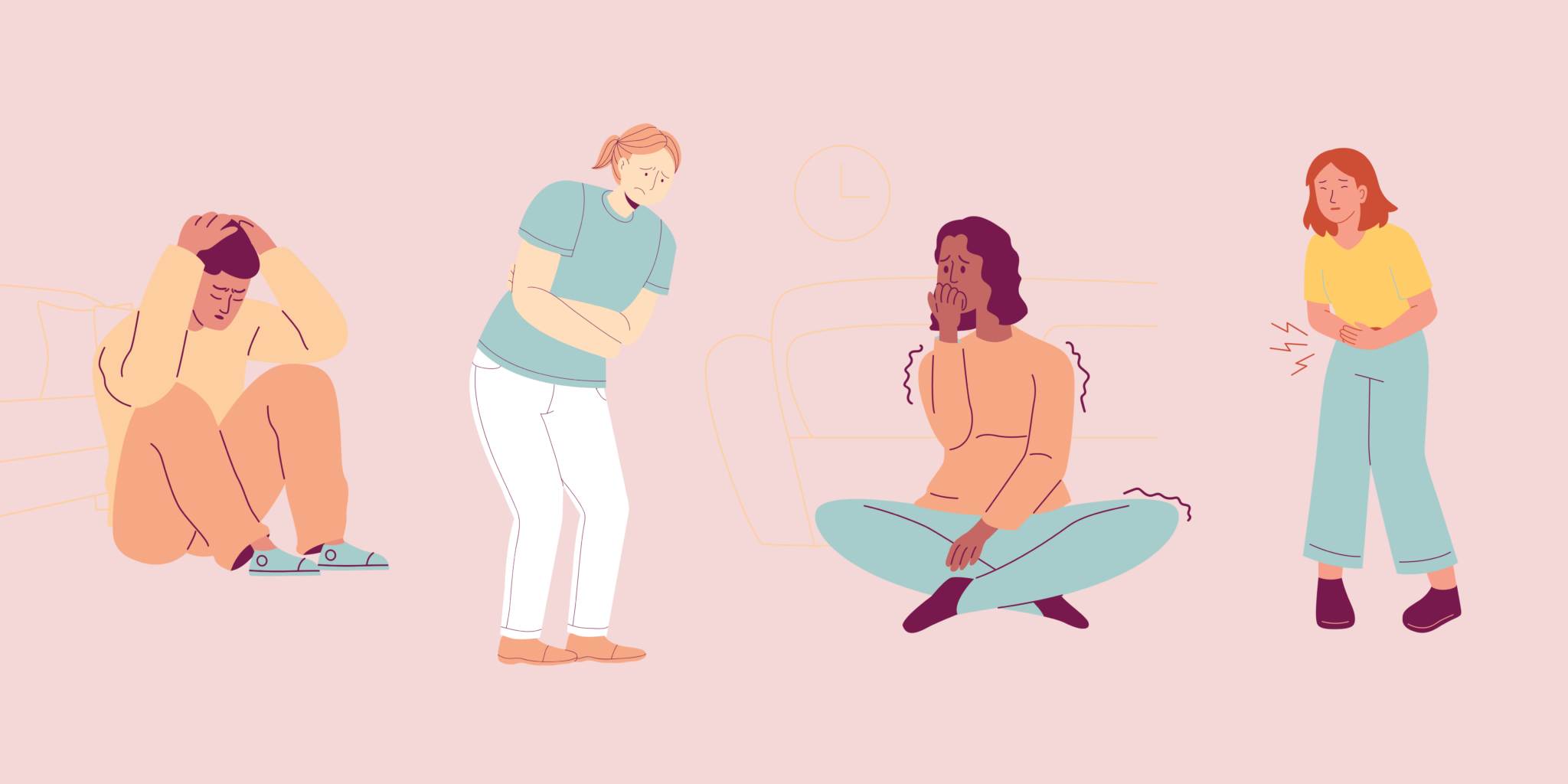
Constipation
Being constipated or having a hard gut and not being able to go to the bathroom regularly affects one’s entire life. Thoughts start swirling, “When will it happen, how will it go, and where will I be then?”. The gut’s inability to work at the right pace not only affects the fact that bathroom visits become infrequent; constipation itself can make one feel uncomfortable, while gas, bloating, and pain become more challenging to manage.
What is constipation?
Constipation is defined in healthcare as having fewer than three bowel movements per week. However, some may feel constipated despite daily bathroom visits. In such cases, it is more likely the sensation of incomplete bowel movements that is being experienced. This simply means that the bowel does not fully empty during a bathroom visit. Approximately 30% of those diagnosed with IBS (Irritable Bowel Syndrome) are constipation-predominant and are then referred to as IBS-C.
For those experiencing constipation, advice on fibre, fluids, and exercise may not be sufficient. Following a low FODMAP diet helps most people who are constipated and often improves bloating, gas, and discomfort. However, achieving complete satisfaction with bathroom visits can be challenging, and additional strategies may be needed for comprehensive relief. If you are following a low FODMAP diet, it’s advisable to wait with supplements and medications until after the elimination phase to evaluate the effectiveness of the dietary treatment first. Afterwards, you are free to try them.
Tips for those who want to address a sluggish bowel
Evaluate Your Entire Diet: Before starting with the low FODMAP diet, it’s good to track your intake over a week to ensure you’re getting enough fluids and fibre. Also, consider your physical activity and meal schedule; these can be good initial steps and may help kickstart your bowel movements. If needed, you can proceed to try the low FODMAP diet.
Monitor your coffee intake: Coffee can have both positive and negative effects on the digestive system. While it contains FODMAPs, it also has a laxative effect. Pay attention to your body’s response and consider reducing coffee intake throughout the day.
Increase fibre intake: If you are still constipated despite following the low FODMAP diet, try adding more fibre-rich foods to your diet. Include foods like brown rice, quinoa, kiwi, lentils, oats, and all approved fruits and vegetables. Chia seeds and flaxseeds can also be beneficial in porridge or yoghurt. Husk, a gentle fibre supplement, is available over the counter and is suitable for individuals with IBS.
Consider magnesium supplement: Many people struggle to get enough magnesium from natural sources. Magnesium, found in brown rice, nuts, seeds, and wheat bran, is essential for various bodily functions and has a laxative effect. Taking a magnesium supplement (300-400 mg) before bedtime can improve bowel function.
Optimize sitting position: The right sitting position can alleviate and prevent constipation as the bowels empty more effectively when sitting correctly. Lift your knees and lean forward to facilitate bowel movements and enhance the overall sensation.
Allocate sufficient time for toilet use: Insufficient time for a toilet visit can worsen constipation. Plan for a comfortable period in the morning. If you know your colleagues are waiting outside, find a less busy restroom to take your time.
Myths about constipation
Myth 1: For constipation, you always need fibre supplements.
Fact: Well, fibre is good; it helps the intestines work better, but it has to be the right kind. Wheat bran, rye, and other whole grain products can in fact increase constipation. The right kind of fibre is soluble, like oats, and fibres found in vegetables, fruits, and legumes.
Myth 2: It’s good to drink a lot if you’re constipated.
Fact: There is little evidence that constipation can be alleviated by increasing fluid intake unless you are very dehydrated. Fluid intake is important, but drinking several extra litres a day only gives the kidneys unnecessary work. About 1 litre of fluid is good to consume in addition to what you get through food and what you drink with meals.
Myth 3: The intestine can get used to laxatives.
Fact: A common belief is that prolonged use of laxatives can lead to habituation (a reduction in laxative effect) and/or tolerance (the need to increase the dose for maintained effect). However, research shows that tolerance is rare in the vast majority of users.
Myth 4: Laxatives can damage the intestine.
Fact: There is no evidence in clinical studies that recommended doses of bowel-stimulating laxatives would cause damage to the intestinal nervous system. This applies even with long-term use.
Myth 5: Physical activity helps against constipation.
Fact: Being active is always good! Moderate physical activity can help individuals with mild symptoms, but there is no evidence that it has any effect on more severe constipation. In such cases, it is more important to look at the diet and make changes there.
Sofia Antonsson
Reg. Dietitian, Belly Balance
Take control of your IBS today!
Ready to reclaim your life from IBS? Our app provides the tools and guidance you need to manage IBS effectively.
Download the App



